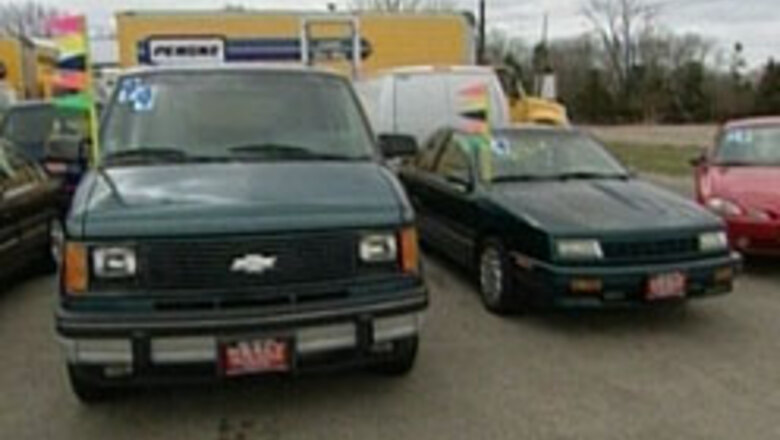
views
New York: The House passed a stopgap $14 billion bailout to US automakers on Wednesday evening, but Republican opposition cast doubts about its fate as it moves on to the Senate.
The House vote came in the wake of an agreement on the measure earlier in the day between Democratic Congressional leaders and the Bush administration.
The bill is designed to keep General Motors (GM, Fortune 500) and Chrysler LLC out of bankruptcy through at least March to give the new Congress and Obama administration a chance to craft a more long-term solution.
The measure passed by a count of 237 to 170 thanks to overwhelming Democratic support. But only 32 Republicans joined Democrats in voting for the bill.
Eight of those Republicans are from Michigan, joining the six Democrats in the state's delegation in voting for the measure.
A ninth Michigan Republican, Timothy Walberg, did not vote. Seven other Republicans that voted for the bill are from nearby Midwestern states that are also home to auto plants. But outside of the auto belt, the bailout had little Republican support.
Senate rules would allow the Republican minority to block or even kill the legislation. And even with the support from the White House, Republican anger seemed to grow throughout the day.
During the House debate, Democrats and Republicans from Michigan both expressed heavy support for the bailout. But virtually all other Republicans who spoke during the debate argued that it would not solve the problems dogging the industry.
The $14 bn is $1 bn less than what was being discussed earlier in the week, and less than half the $34 bn requested by automakers last week. Still it may well be enough to stave off the immediate threat of bankruptcy.
GM has said it needs $4 bn by the end of the month to continue operations, and believes it'll need an additional $6 bn in the first three months of 2009. Chrysler has said it needs $4 bn by the end of the first quarter.
Ford Motor (F, Fortune 500), which has more cash on hand than its U.S. rivals, is not expected to tap into this bailout in the coming months.
What is in the bill
The stopgap measure is designed to let the new Congress and incoming administration of President-elect Barack Obama to craft a longer-term solution.
It would also give the companies time to negotiate with creditors and the United Auto Workers union on additional concessions needed to stem their ongoing losses.
But the bill also sets strict oversight of the companies. There would be limits on executive pay, prohibitions for so-called golden parachutes and requirements that the automakers get rid of their corporate aircraft and not pay dividends while loans are outstanding.
The bill also provides for a presidential appointee, popularly referred to as a "car czar," to oversee the company's efforts to restructure their operations. If the car czar determines that the companies have not made progress on cutting costs, the loans would be recalled within 30 days.
In addition, the government would receive warrants - the right to buy a stake in the companies at a certain price - equal to 20% of the loan's value.
While most House Republicans have been strongly opposed to the auto bailout from the beginning, multiple Republican aides say that the Michigan Republicans and others from the Midwest auto belt are expected to vote for the agreement. Such support would give House Democrats the votes needed to pass the bill.
The agreement came after Democrats dropped a provision in a previous draft of the bill that would have prohibited automakers from continuing their support of lawsuits against states with emission standards more stringent than current federal rules.
Still, some Senate Republicans have threatened a filibuster, which could delay and even potentially block a vote on the bill. Five Senate Republican critics of the measure vowed Wednesday to do what they could to defeat the measure.
"What I've seen thus far is a travesty," said Sen. Richard Shelby, R-Ala. "This is an installment on a huge bailout that will come later. This will not make Chrysler, General Motors or Ford competitive. This is only delaying their funeral."
Shelby would not predict whether critics had enough votes to block passage. But he cautioned "I think we're going to have a lot more friends than you probably think."
Vice President Dick Cheney and White House Chief of Staff Josh Bolton attended a Senate GOP policy lunch in the Capitol Wednesday to try to persuade skeptical GOP senators to support the bill.
After the meeting, two Republican senators said they believed the bill was in trouble.
"I don't think the votes are there on our side of the aisle," reported Sen. George Voinovich of Ohio, one of few vocal Republican backers of the bill. Shelby added that he, too, thought the bill would not pass.
The big question is whether supporters of the bill can convince enough Republicans to get 60 votes to overcome opposition among those GOP senators.
Sen. Harry Reid, D-Nev., said if Senate Democrats and Republicans can not reach an agreement to cut through the procedural steps opponents of the bill are likely to require, the Senate won't have final passage until late Saturday night or Sunday.
Reid held out hope that an agreement will be reached to require a 60-vote threshold -- the same vote total needed to break a time-consuming filibuster -- but allow final passage by perhaps on Friday.
The Bush administration vowed Wednesday evening to keep pressing lawmakers in coming days.
"We believe the legislation developed in recent days is an effective and responsible approach to deal with troubled automakers and ensure the necessary restructuring occurs," said Dana Perino, White House press secretary.
CNN's Dana Bash, Ted Barrett and Deirdre Walsh contributed to this report.










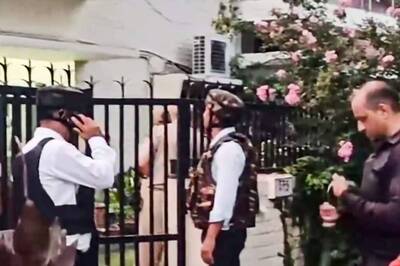
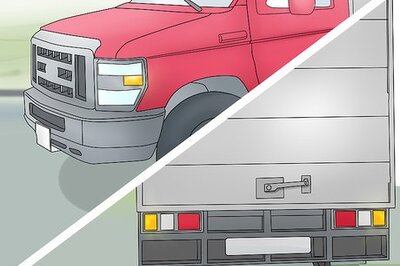




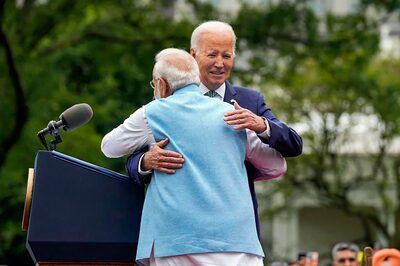

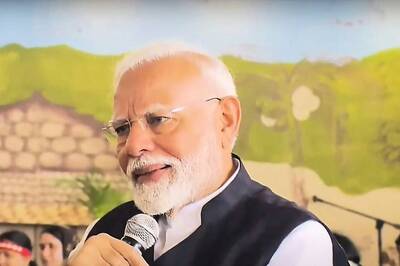

Comments
0 comment